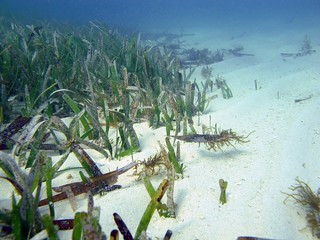Australian scientists have urged greater consideration for the brilliantly-hued parrot fishes that tend and renew the world’s imperilled coral reefs.
“Parrotfishes are the constant gardeners of the reef. They play a crucial role in keeping it healthy, suppressing weed, removing sediment and helping the corals to regrow after a setback,” explains Professor David Bellwood of the ARC Centre of Excellence for Coral Reef Studies and James Cook University.
In a major new study published in the Proceedings of the Royal Society, Prof. Bellwood, Dr Andrew Hoey and Prof. Terry Hughes have investigated parrot fish populations on 18 coral island reefs extending from Mauritius in the west Indian Ocean to Tahiti in the central Pacific.
“Parrot fish fulfill a number of key roles on the reef. They remove sick and dead corals and clean areas for new corals to settle, they remove weedy growth, and they cart away literally tonnes of sand and sediment that would otherwise smother the corals,” Prof Bellwood explains.
Read the rest of this article at ARC Coral Reef Studies…
Note: Newswire stories are provided as a courtesy of OceanDoctor.org. Content of these articles is provided by external sources.





